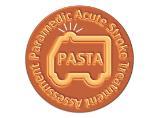About the Trial
When a stroke occurs, quicker treatment for some patients can improve the chances of making a full recovery. If a stroke is caused by a blockage in one of the blood vessels leading to the brain (the most common type of stroke), it is important that patients are assessed quickly to decide if it is appropriate to use a clot busting drug treatment called thrombolysis. The quicker this clot busting treatment is received, the more likely it is that damage to the brain is reduced and a better recovery may occur. Unfortunately, rapid treatment of stroke is not always achieved. This can be because of delays in patients seeking medical assistance but also because of the time taken to perform the specialist medical assessments to determine which type of stroke treatment, including thrombolysis, may be appropriate. Procedures to reduce delays and to accelerate access to stroke treatments are needed, and paramedics may be able to play a more important role.
This research study is a clinical trial to determine whether a Paramedic Acute Stroke Treatment Assessment (PASTA) pathway can speed up access to emergency stroke treatments, especially thrombolysis treatment, and so improve recovery after stroke. Participants receive either usual emergency stroke care or the additional PASTA pathway. The PASTA paramedics have received training to perform additional information collection and communication which might help with the first stages of patient care in the hospital.
The effectiveness of the PASTA pathway will be evaluated by comparing recovery after stroke of participants in each randomisation group. The study will run for 3 years and aims to recruit 1297 participants from three geographical areas in the UK: North East England, North West England and Wales.
For more information on the trial, please email us at pasta@ncl.ac.uk or call us on 0191 208 6779.
